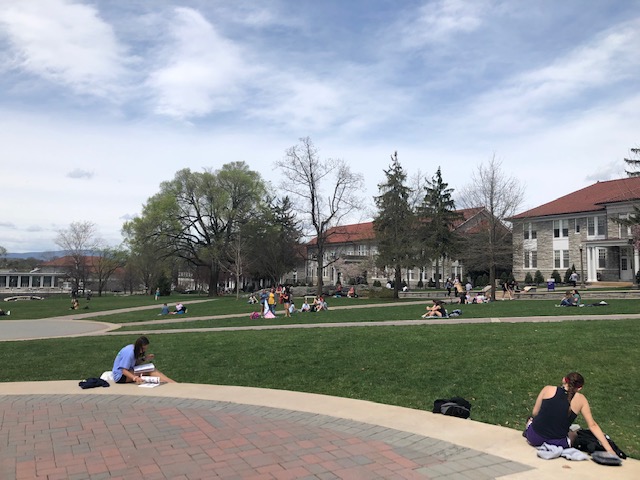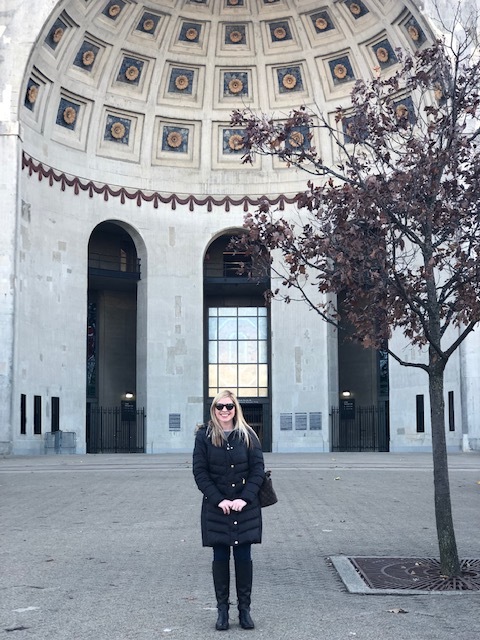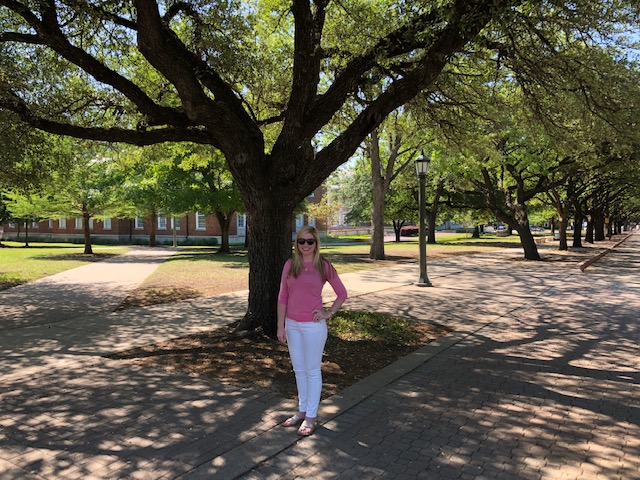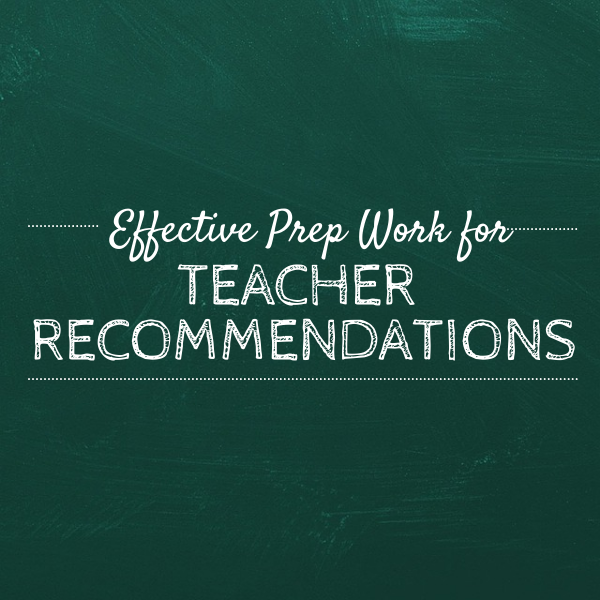I’m sure that approximately zero percent of my readers just got that reference, but I couldn’t help myself! I graduated from a different Quaker independent school (elementary) before heading off to Choate, so maybe that’s why I find the recent antics at Sidwell to be so troubling. I’m not Quaker, by the way, nor are most of the kids who attend Quaker schools. But I very much respect and identify with their belief system, which runs 100% contrary to the behavior exhibited up on Wisconsin Avenue.
If you are not familiar with the story, you can get up to speed here: https://www.today.com/parents/college-counselor-warns-parents-stop-sabotaging-other-kids-t151612
I’ve actually been following the Sidwell story for quite a while and there’s much more to it than what has been reported in the mainstream media. Long story short, there’s a lot of unhappy parents that believe that the college counseling office is “not doing a good job” and it seems that a select few have become outspoken about it. I’m writing about it because I think that there’s a bigger-picture lesson that parents considering an independent school education can take from the situation. I warn you that this is going to be a long post!
There are amazing independent school college counseling offices in the DC area and there are also really poor ones. However, I really believe that the problem here comes down to expectations. If parental expectations about their college counselor’s role are not in line with reality, families can have the best independent school college counselor on the planet and they will not be satisfied with that person’s performance.
I have a unique perspective on this because I spent a total of eight years working in two independent school college counseling offices. I directed one of those offices for six years, and started my business while there (it grew rapidly and I had to step down so I could concentrate on it full time). For a while, though, I had a foot in each role. It was not until that time that I was really able to understand why a parent at a top independent school would hire an independent counselor. In fact, I will admit to being a little offended myself whenever I’d previously found out that one of my students’ parents had contracted with an independent counselor. This didn’t happen often at all because independent counseling wasn’t as widespread then, but I can think of 2-3 occasions. I am embarrassed to admit now that I took it sort of personally and thought that maybe they didn’t have confidence in me.
This was not the case at all. I was totally wrong.
The reason that independent school parents hire independent school college counselors is because the function of the job is TOTALLY DIFFERENT. As an independent counselor, I can do anything I want for a student as long as it’s within ethical/moral guidelines. I’m also compensated accordingly.
I can work alongside Jennifer, McClain, Alan or Elizabeth, collaborating together to spend twelve hours helping a student craft an amazing essay that we think about for years to come because it is just that great. I can ask Rebeccah to hound a teenage boy and finally start texting him repeatedly because he refuses to do his 15-minute HW assignment between meetings and we NEED HIM TO FINISH! Or I can have her run to Staples to pick up a leather portfolio and fancy paper for a student who needs to leave for her audition in less than 24 hours and is unprepared.
I can help an enterprising teenager fill out paperwork from the State Corporation Commission to incorporate her very legitimate business (which should have been incorporated anyway a long time ago), giving her the ability to take it up a notch in her activities section by reporting that she owns an LLC. I can pick out outfits for interviews and sign kids up to get the Skimm for an easy way to be informed on current events (I can also send someone home to change when she shows up in yoga pants on the way to a college fair… eeek!).
I can help with rush resumes and head shots, a ton of summer camp/program applications - I can even moonlight as a miniature babysitting agency by passing out phone numbers via private message to members of the Vienna Moms facebook group after a few girls tell me they wants to babysit more hours to enhance their activity list but don’t know how to make that happen! Actually, speaking of Vienna Moms, I can even find a former client a very legitimate and impressive internship off that same group when she comes home after freshman year to stop in and visit, and confides that she dropped the ball with her school’s career center. And I can get into about five million fights with my husband who goes to bed alone most nights and yells at me that I have no boundaries because I am sitting in my home office writing emails at 2 a.m. and boomeranging them to be sent at 9:30 the next morning!
I could literally write a novel about all of the random stuff that my awesome team and I do on a daily basis to help “our kids” reach their ultimate goals. And while I’d like to think that it’s because we are just that amazing, the truth is that it’s also because we have the capacity to help in this way. Yes, we enjoy it and we are good at it, but we also have the time. And, as I mentioned, we are compensated on an hourly basis for this work.
In my office, we work with about 30-40 students each year on an ongoing basis before closing our doors to new clients in a given cycle. We also have 6 rockstars on our team providing help. If we did not have that kind of ratio, we would not be able to give the help we give.
To be clear: I could not do ANY of this stuff for the kids with whom I worked in my position as their school college counselor. Well, I guess I did sign some of them up for the Skimm, if I’m being honest. But it was just a very different kind of relationship. It’s not that I loved them any less - I actually really enjoyed them and am still in touch with many of them and their parents. I LOVE seeing them move through their adult lives on social media (the fact that some of them are parents already sort of blows my mind). So my inability to go above and beyond wasn’t about a lack of care, concern, or professionalism on my part - it was just about time. When you have a ratio of thirty kids to one counselor, it’s a matter of math. I did much more for those kids than public school counselors could have ever done, but the parents’ expectations were also much higher than the public school parents.
Now, we have 25, 35, and 55 hours of time to work with students on a 1:1 basis - plus another 20+ hours of individual administrative help (aka nagging) provided to each student, depending on their package. Is it any surprise that we can do more for them?
I will never forget (I wonder if I should post this - I won’t say which school it was) meeting a prospective parent on a tour given by a member of the admissions staff at a school at which I worked. That in and of itself was not strange, as I met prospective parents all the time. But on this particular day, everything was unusually quiet because there were no kids in my office and the hallway was empty. As they left, I could hear the person telling the parent information that was patently false about the services that my office provided. I can understand a little spin, but this was just … not true. You should have seen the horror on my face! I was younger at the time, and it was hard for me to speak up, but I did - in a professional way - because I felt like I had a moral obligation to do so. I think about that moment all the time, basically every time an independent school parent comes into my office and tells me that their counselor is horrible.
Maybe the counselor is horrible. That’s totally possible. Counselors like that exist. However, upon digging a little deeper, it’s typically the case that the counselor in question is not horrible at all. It’s just that the admissions staff may have been a little creative in terms of the expectations that they set back when they tried to sell the school to the family.
So when they reach the college process, parents automatically assume that it must be the counselor’s fault that she doesn’t have time to edit multiple drafts of essays, provide individual interview prep or analyze an activities list. I don’t blame them at all - I’d be furious too if I paid amounts that often add up to be hundreds of thousands of dollars based on inaccurate information!
In reality, the reason the counselor doesn’t have time is not because she’s incompetent or lazy. It’s because twenty-nine other families are asking for the same thing in her eight-hour work day. Depending on the school in question, she’s also teaching one section of a class, coaching a sport, working car line duty, planning college nights, responding to questions from over-excited fourth grade parents, and the million other responsibilities that come along with life at an independent school. She’s writing the school profile. She’s planning the junior college trip. Hosting a hundred college reps. Oh and attending “administrative team,” “management team,” and “department head meetings.”
Oh and here’s the best part:
Guess what Sidwell is looking to pay their new counselor to replace the one that everyone has issue with (not the one who wrote the letter)? Keep in mind, this person must have 3-5 years of specialized experience. I can’t verify that this is true, but the salary range listed on at least one website for this position stated $45,000-$58,000 per year.
Why would anyone accept $45,000-$58,000 per year to deal with what is probably a sixty-hour work week and an abusive parent community chock fill of unrealistic expectations? I mean seriously?
So, here’s my advice (I know it took a while to get to it!). Look at an independent school education for what it is: a luxury that is often-times completely worth the money for a multitude of reasons, but one that will probably NOT, and I repeat NOT, tip the scales to get your child into a better college. Your child can get into a fantastic college from any of the high schools in our area. I work with kids that do, every single year, so I can promise that for sure. The kids from independent schools generally do end up with better recommendation letters, and if their counselors are willing to make counselor calls, that’s very helpful. Other than that, though, there’s not a heck of a lot of direct impact to admissions outcomes once you strip away the other variables that account for parental income, student ability, drive, etc.
I want to be clear that I’m not anti-independent school at all. I actually LOVE independent schools. There are a zillion reasons to go that route. If there was an independent school for elementary-aged children on our side of the Potomac that I felt would be a good fit for my family, I would be all for it - we just don’t have very many options within a reasonable commute because our public schools are so strong. I firmly believe that kids who graduate from independent schools have a whole variety of advantages and that my education had a large part in shaping my personality, abilities, and professional success.
So, parents, manage your expectations. Think about what you’ve been promised and whether it is reasonable given the staff in place and the ratios. And if you find yourself in a position where you’ve been the victim of “creative” marketing techniques, for the love of God, please do not take it out on your overworked and underpaid college counselor. Start advocating for change and put pressure on your school to increase their staff to be able to actually provide the services that they advertise to prospective families!





























